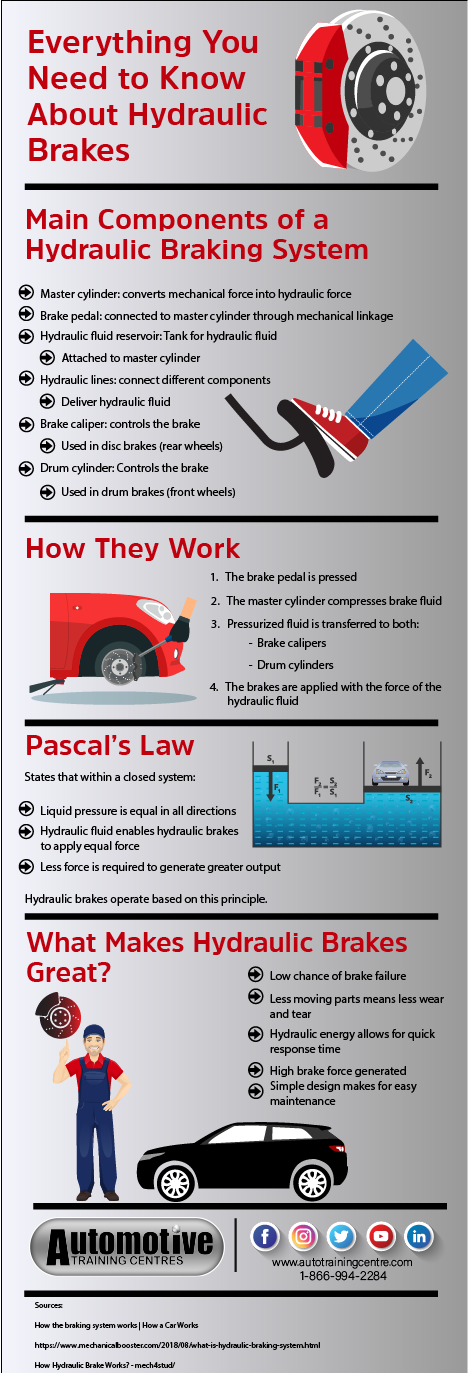Infographic: Everything You Need to Know About Hydraulic Brakes
Completing your auto mechanic training? During your career, it will be important to know the ins and outs of hydraulic braking systems. While mechanical brakes were standard in the past, today, almost every newly manufactured vehicle is equipped with hydraulic brakes. Hydraulic brakes have many advantages when it comes to both durability and performance, and with advancements in technology, they have risen in popularity as a safer option for vehicles. Hydraulic brakes operate via hydraulic fluid, which is held in a reservoir within the braking system. Through the application of hydraulic energy, this fluid distributes force to the brakes, slowing the vehicle down.
After completing a mechanic program, familiarizing yourself with how hydraulic brakes work, as well as the advantages that they offer, will help you to service vehicles equipped with this braking system during your career. Learn more about these innovative brakes below!

Everything You Need to Know About Hydraulic Brakes
Meta Description: Are you interested in auto mechanic training? Knowing how hydraulic brakes work will enable you to service newly manufactured vehicles. Find out more here.
Main Components of a Hydraulic Braking System
- Master cylinder: converts mechanical force into hydraulic force
- Brake pedal: connected to master cylinder through mechanical linkage
- Hydraulic fluid reservoir: Tank for hydraulic fluid
- Attached to master cylinder
- Hydraulic lines: connect different components
- Deliver hydraulic fluid
- Brake caliper: controls the brake
- Used in disc brakes (rear wheels)
- Drum cylinder: Controls the brake
- Used in drum brakes (front wheels)
How They Work
- The brake pedal is pressed
- The master cylinder compresses brake fluid
- Pressurized fluid is transferred to both:
- Brake calipers
- Drum cylinders
- The brakes are applied with the force of the hydraulic fluid
Pascal’s Law
States that within a closed system:
- Liquid pressure is equal in all directions
- Hydraulic fluid enables hydraulic brakes to apply equal force
- Less force is required to generate greater output
Hydraulic brakes operate based on this principle.
What Makes Hydraulic Brakes Great?
- Low chance of brake failure
- Less moving parts means less wear and tear
- Hydraulic energy allows for quick response time
- High brake force generated
- Simple design makes for easy maintenance


